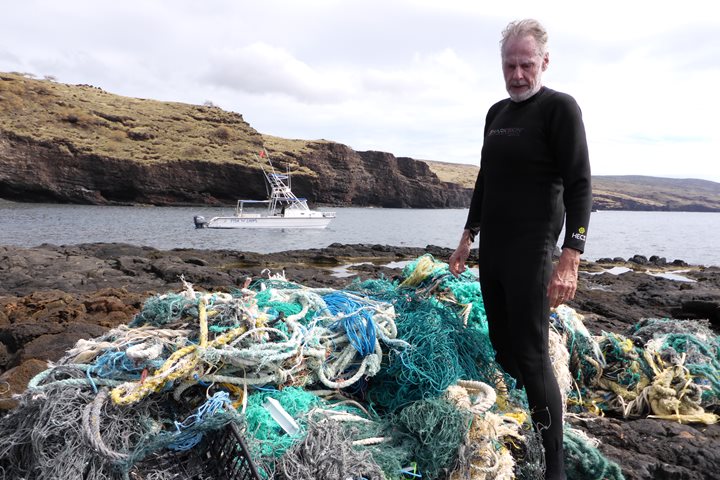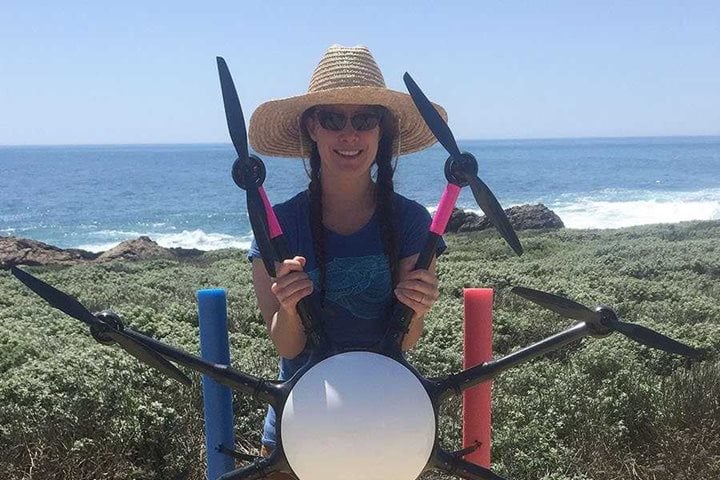- WorldView
- 6 Min Read
- 27 Jun 2019
How The Travel Industry Can Help Fight Climate Change
I see global climate change as the single most important issue of our time. And I want to spark more than just awareness and hope; I want to inspire action. After listening to scientists, educators, politicians, and the voices of young people like Greta Thunberg—and combining these perspectives with what we’re observing in the natural world—I feel compelled to greatly accelerate what I can do personally and professionally to address this issue. Get Inspired by Photos, Videos, Webinars, Stories, and Exclusive Offers. Sign Up
This is why, as announced on June 7 (but retroactive to January 1, 2019), Lindblad Expeditions is becoming a carbon neutral travel company. We have always had an ethic of conservation across our fleet and offices, but the demand for bigger, bolder, and more sustained efforts to combat global climate change is greater now than ever before.Some may argue that humankind should avoid travel in airplanes, ships, or cars to dramatically lessen carbon emissions. I will argue that staying at home in our own bubbles isn’t a viable solution for anyone who wants to engage with the wider world and continue to explore, understand, discover, and improve it. Which is why our approach to travel—travel that provides people a chance to see the world up close and personal and develop empathy and a real reason to care about its future—is more important now than ever before.So, as a travel company, what can we do?
When we first started thinking about carbon offsets as a mechanism to combat climate change about 10 years ago, we did a huge amount of research on the programs available at the time, and I talked to lots of people in the scientific community. Back then, carbon offsetting was in its infancy, and many of the investments in it weren’t being used effectively. The credible scientists I consulted, all of whom wanted to support offsetting, said, “Don’t do it now. It’s too early.”
But times have changed, and carbon offsetting programs are much more effective now. They’re making a real measurable impact, and we’re committed to supporting them.
Reducing and Offsetting Our Carbon Footprint
Any good carbon offset program will have two parts: First, an intelligent and systematic plan to measure and reduce the emissions caused by an individual or enterprise. Second, a verifiable way to offset any carbon emissions that cannot be eliminated.
We’re working with South Pole, one of the world’s leading specialists in this field, to purchase carbon credits annually and make sure the projects we invest in are delivering on their goals. Our credits will offset the carbon footprint of our fleet, land-based operations, offices in New York City and Seattle, employee travel, and anything else that can be measured.
At the same time, we’re making a company-wide push to reduce our footprint across the many layers of our business. Unfortunately, there isn’t any current technology that allows ships to operate reliably in remote places without burning fuel. We hear a lot of misleading noise about electric or hybrid solutions, but those aren’t developed in any significant way yet. Eventually they will be—and until they are, we’ll continue to look at the latest technology and adopt the most promising advances.
Our newest vessel makes use of advanced technology that lessens fuel consumption by 45%; our captains and expedition leaders are always evaluating routes to be as fuel efficient as possible; our hotel department is vigilant in finding ways to reduce waste; our marketing team uses a print house that shares our values for sustainability, with a carbon footprint near zero and 62% of their energy produced by wind and the 4,540 solar panels on the roof of their facility.
And this is just the tip of the iceberg. We’re constantly seeking new ways to innovate, lead, and partner with others who want to do better.
Inviting Others to Join Our Mission
We’re committed to doing everything in our power to make a positive impact on the planet. It’s part of our DNA, evident in our conservation programs and sustainability initiatives. But the world needs all hands on deck—both inside and outside the travel industry—to hear the call, believe they can make a difference, and take steps to fight this massive problem. Beginning this year, we’ll invite our guests to get more involved with our sustainability efforts. Anyone who books an expedition will have an opportunity to purchase carbon offsets for their flights, via a simple online calculator.
While aboard our ships, guests can also choose to donate to our conservation efforts through the Lindblad Expeditions-National Geographic Fund. Every year we raise between $1.5 and $2 million to support the health of our oceans and the people who rely on them.
We reach a lot of people every day who develop stories to tell for a lifetime. We’re fortunate to have many loyal travelers who are tremendously influential as leaders in the business world, government, the NGO community, and universities. If someone with a big platform sees that we’re taking on a particular initiative, they might go back and effect change in their respective industries. Storytelling can reach across ideologies, and telling stories about our rapidly changing world is critical.
To truly move the dial on global climate change, we need our efforts to serve as examples to others and be amplified. We hope our commitment creates a ripple effect that magnifies our efforts many times over—and helps preserve this magnificent planet we call home.
Sven-Olof Lindblad is the President and CEO of Lindblad Expeditions. He traveled extensively with his father, renowned adventure-travel pioneer Lars-Eric Lindblad, who led the first non-scientific groups of travelers to Antarctica (1966). In 1979 Sven launched Special Expeditions, the adventure travel company that became Lindblad Expeditions. His personal experience led to a commitment to environmentally responsible travel, which has resulted in numerous travel and environmental awards. Sven is an honorary member of the General Assembly of the Charles Darwin Foundation for the Galapagos Islands and is a founding Ocean Elder. He also serves on the Board of The Safina Center, on the Board of Trustees of Rare, and on the Board of Advisors for Pristine Seas.


